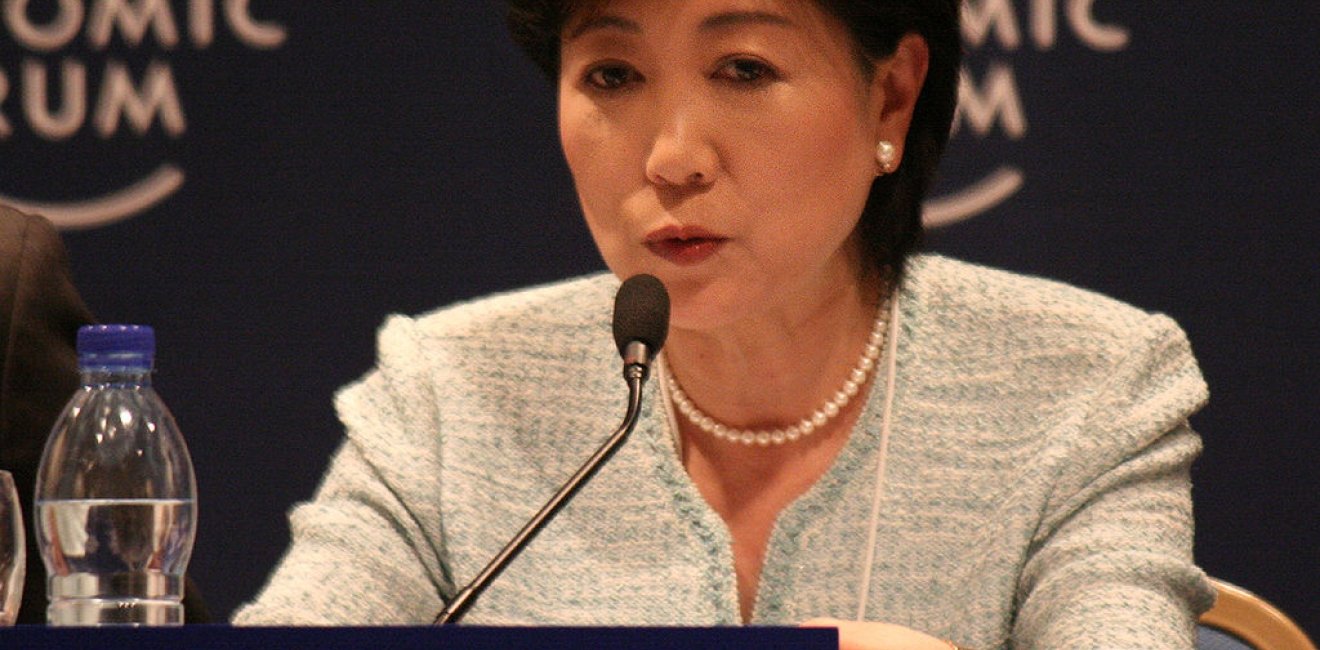Tokyo has joined the global year of women at the helm at long last. Japan’s former defense minister won a landslide victory Sunday to become the first female governor of Tokyo, making Yuriko Koike the country’s most powerful female politician. Koike’s victory was especially remarkable as she went her own way as an independent candidate, severing her long-established ties with the ruling Liberal Democratic Party. But she will have much to prove from day one of assuming office, from fighting rampant sexism to tackling government corruption. She will also be responsible for the megapolis hosting the summer Olympics in 2020 and making sure that the world’s largest city of 13.6 million people is able to meet the needs of sweeping social change.
Given that Tokyo’s GDP is bigger than all countries except for 10 of the largest economies, Koike’s election has certainly put a big crack in the glass ceiling. But whether Japan will have its own version of British Prime Minster Theresa May, Taiwanese President Tsai Ing-wen, South Korean President Park Geun-hye, or German Chancellor Angela Merkel remains to be seen.
Among the record-breaking 21 candidates on the ballot, Koike was by far the most qualified, having been a Diet member since 1992 and serving as environment minister, minister for Okinawa and the Northern Territories, as well as defense minister over the past two decades. Nevertheless, she was not the candidate of choice for the LDP, and she stood for election independent of party affiliation.
Meanwhile, she faced rampant sexism throughout her campaign, not least as some prominent politicians publicly declared that the 64-year-old was past her prime for taking office. Others did not hesitate to point out that she has never been married and has no children, suggesting that this made her less of a woman and therefore less appealing to female voters. Such accusations have clearly tried to undermine her credibility to be able to deliver on one of the most pressing challenges facing Tokyo: namely addressing the needs of younger families who are eager to move into the megapolis for work and require childcare assistance on the one hand, and meeting the needs of a rapidly aging society on the other.
But while all women worldwide face greater scrutiny compared to their male counterparts, the pressure on Koike to be effective will be especially harsh.
But a more pressing issue will be to restore public confidence in the office of the governor. After all, the governorship election was held unexpectedly as her predecessor, Yoichi Masuzoe, resigned only halfway through his four-year term in June for spending lavishly on family holidays and buying luxury items with taxpayers’ money. Masuzoe’s downfall was particularly ironic given that he had campaigned against corruption as the previous governor, Naomi Inose, was forced to leave office amid a scandal about receiving personal loans from a private company.
There will certainly need to be more confidence in the trustworthiness of the governor as Tokyo prepares to host the summer Olympics in 2020. The games have already suffered from a crisis of confidence, firstly after the official games logo was found to have been plagiarized from a Belgian artist and had to be redesigned. Then, the city decided to scrap the Olympic stadium designed by London-based celebrity architect Zaha Hadid last year and scale back on its initial plans in order to keep costs in check.
But perhaps the area where Koike can make the biggest difference will be in Tokyo’s diplomatic relations. In 2012, then governor Shintaro Ishihara announced the city’s plans to buy the disputed Senkaku islands, known in China as Diaoyu islands, in the East China Sea from private owners. That led the Japanese government to buy the islands from the Kurihara family several months later, but tensions between Beijing and Tokyo over ownership of the territories remain.
While Japan has not seen any major outbreaks of violence because of the territorial disputes, nor has there been any terrorist attacks due to turmoil in the Middle East, there is greater awareness that the megapolis too is vulnerable to civil unrest as much as the rest of the world. Certainly, Japanese nationals have been casualties of terrorist attacks overseas, most recently when nine Japanese aid workers were among the 21 people killed in a July attack by Islamic terrorists at a restaurant in Dhaka. Koike is not only a former defense minister, but she is also a graduate of Cairo University, fluent in Arabic and more knowledgeable about the Middle East and issues related to radical Islam than the majority of Japanese politicians.
There will undoubtedly no lack of opportunities for Koike to shine as a much-needed strong leader. But while all women worldwide face greater scrutiny compared to their male counterparts, the pressure on Koike to be effective will be especially harsh. So far, though, she seems unafraid and confident enough to overcome obstacles her own way. That determination will undoubtedly be critical for her to deliver the Japanese capital from the numerous risks it is facing.
The opinions expressed here are solely those of the author.







